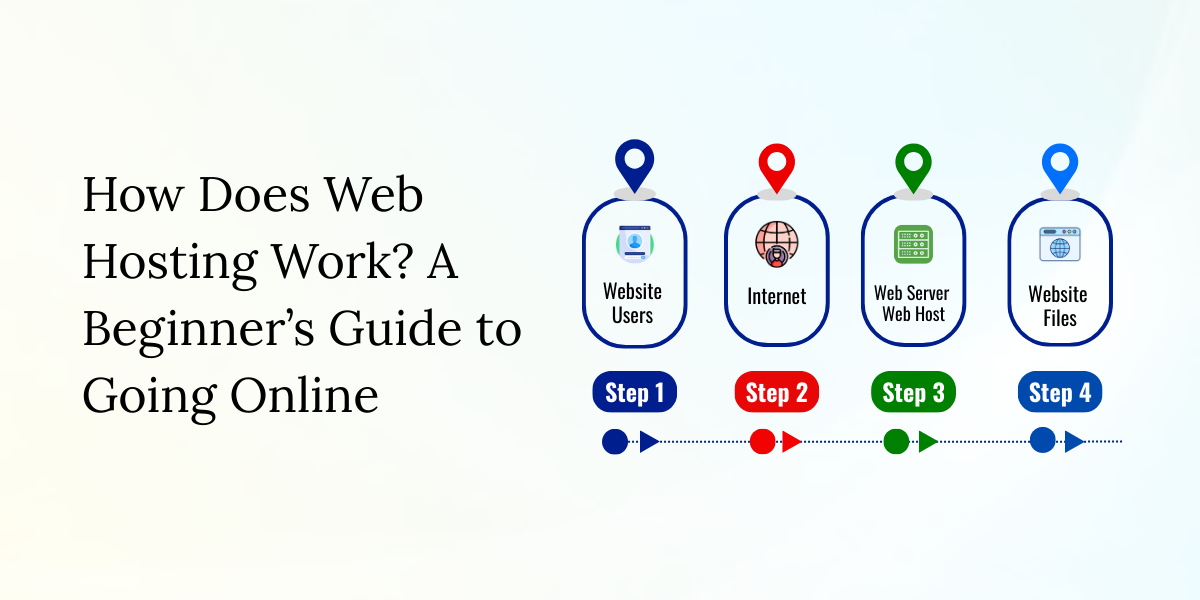If you’re making plans to create a website—whether it’s in your business, personal weblog, or on-line save—you’ll eventually come upon the term net web hosting. For novices, this concept can seem technical and overwhelming. But don’t worry! In this guide, we’ll destroy down what net website hosting is, the way it works, the one of a kind styles of web hosting, and how you can choose the proper plan to deliver your website online.
What is Web Hosting?
In easy phrases, web web hosting is a service that makes your website accessible at the net. Every internet site is made of documents—textual content, snap shots, movies, and code. These files want to be stored somewhere safe and related to the net 24/7. That’s wherein net web hosting corporations are available.
A internet host rents you space on their servers (powerful computer systems designed to shop internet site documents) and guarantees your internet site is available to traffic anytime they type your area call into their browser.
👉 Think of it like this:
Domain name = Your home address.
Web hosting = The house where your belongings (website files) are kept.
Website files = The furniture and items that fill your house.
Without hosting, your website simply cannot go live.
How Does Web Hosting Work?
Here’s a step-by-step breakdown of how web hosting actually works:
- Website Creation
You create a website using code (HTML, CSS, JavaScript) or through website builders like WordPress, Wix, or Shopify. - File Storage on a Server
All your website’s files (text, images, videos, code, etc.) are uploaded and stored on a web host’s server. - Domain Connection
When you purchase a domain (like www.example.com
), it is connected to your hosting account so that visitors can reach your site. - DNS Translation
The Domain Name System (DNS) converts the domain name into an IP address that the server recognizes. - Browser Request
When someone types your website URL, their browser sends a request to the hosting server. - Server Response
The hosting server processes the request and delivers the correct files (HTML, CSS, images, etc.) to the user’s browser. - Website Display
Within seconds, the visitor sees your fully loaded website on their device.
Types of Web Hosting
Not all hosting services are the same. Depending on your needs, budget, and website traffic, you can choose from different hosting types:
1. Shared Hosting
- Multiple websites share the same server resources.
- Affordable and beginner-friendly.
- Best for personal blogs and small business websites.
- Downside: Performance can slow if other sites on the same server get high traffic.
2. VPS Hosting (Virtual Private Server)
- A physical server is divided into several virtual servers.
- More control and resources than shared hosting.
- Suitable for medium-sized businesses or growing websites.
3. Dedicated Hosting
- You rent the entire server for your website.
- Offers maximum speed, customization, and security.
- Ideal for large businesses or high-traffic websites.
- Expensive compared to other hosting types.
4. Cloud Hosting
- Websites are hosted on a network of virtual servers (the cloud).
- Highly scalable and reliable.
- You only pay for what you use.
- Great for businesses expecting growth or unpredictable traffic.
5. WordPress Hosting
- Specifically optimized for WordPress websites.
- Includes built-in tools, security, and automatic updates.
- Best for beginners using WordPress.
Major features of a good web hosting service
When choosing a hosting provider, look for these necessary features:
- Uptime Guarantee – AIM for 99.9% uptime to be always available your site.
- Speed and performance – Fast loading speed improves user experience and SEO ranking.
- Safety facilities – SSL certificates, firewalls, malware scanning and backup.
- Customer support – 24/7 support through chat, email, or phone is necessary for beginners.
- Scalability – The ability to upgrade plans as your website grows.
- Cheap pricing – Ensure that hosting fits your budget without hidden cost.
Why is web hosting important?
Web hosting is not just about storing files. It impacts:
- Website speed – Rapid hosting improves user experience.
- SEO rankings- Google prefers reliable, fast-loading sites.
- Website Safety – Hosting providers help protect your data from hackers.
- Scalability – Hosting ensures that your site may grow with your business.
Simply put, the quality of your web hosting can create or break your online appearance.
Steps to get your website online
- Choose a domain name – something unique and easy to remember.
- Select a hosting provider – compare features, schemes and reviews.
- Choose the right hosting plan – Start small (shared hosting) and upgrade later.
- Connect the domain to hosting – link your domain and host through DNS settings.
- Install a CMS (optional) – WordPress is the most popular for beginners.
- Upload website files – Use CPANEL, FTP or Site Builder.
- Launch your website – test everything before going live.
Final thoughts
Web hosting may look complicated at the first time, but once you understand the basics, it becomes very easy to navigate. In short:
- Hosting stores your website’s files.
- Servers deliver your site to visitors when they enter your domain.
- The type of hosting you choose depends on your needs and budget.
If you are a beginner, shared hosting or WordPress hosting is usually the best starting point. As your site grows, you can easily upgrade to VPS, cloud or dedicated hosting for better performance and scalability.
What is Web Hosting? Beginner’s Guide
What is Web Hosting? Complete Guide for Beginners
How to Host a Website in 5 Easy Steps – A Beginner’s Guide
What is Web Hosting? A Complete Beginner’s Guide
A Beginner’s Guide To Web Hosting


